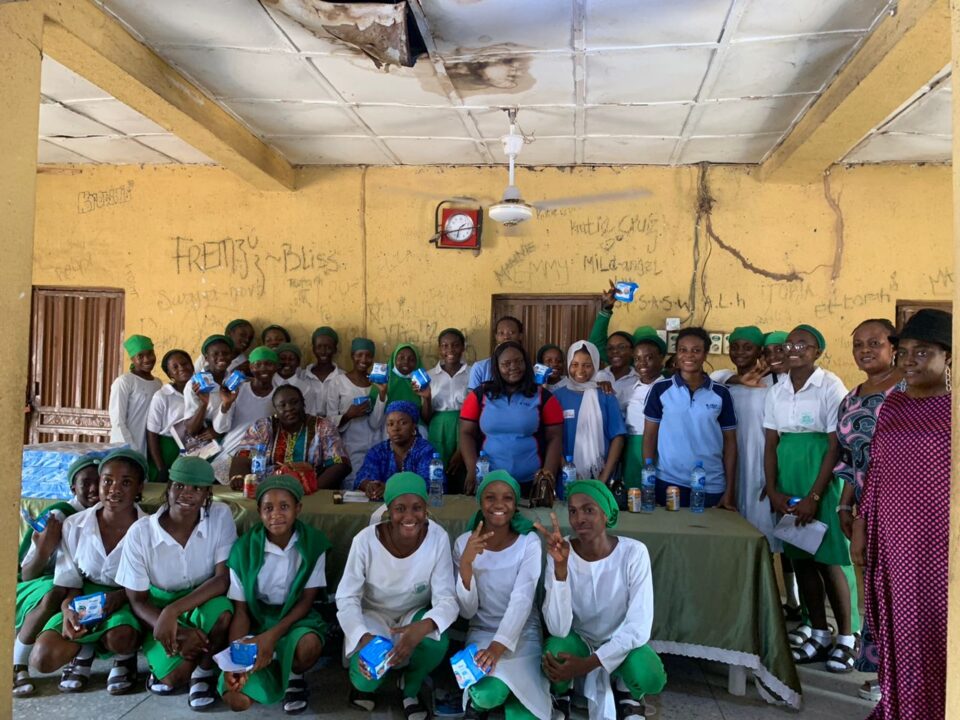By Daniel Tyokua
The Helpline Foundation for the Needy, Abuja has distributed sanitary pads to over 400 female students in the Federal Capital Territory.
During the donation at Government Girls’ Science Secondary School, Kuje, President of the Foundation, Dr Jumai Ahmadu said that one menstrual hygiene kit containing an ample amount of pads each was distributed to the female students and proper education in commemoration of this year’s world Menstrual Hygiene Day, usually celebrated on 28th May.
Represented by the Foundation’s Research Officer, Itodo Felicia, Ahmadu stated that the exercise was to promote menstrual health awareness, empower young students, and ensure they have access to menstrual hygiene products.
She stressed that: “We aimed at addressing the issue of menstrual hygiene management and contributing to the well-being of the students”, in line with this year’s theme, which is “Promoting Menstrual Health”.
According to her, prior to the distribution exercise, her team conducted research on menstrual hygiene, engaged with stakeholders and assessed the needs of the students and the school.
She explained that the school was known for having significant number of female students, with limited resources, before making available an appropriate quantity and type of menstrual hygiene products required.
The Foundation President also disclosed that the Non-governmental Organization organized an interactive session with the students, where discussions on menstrual health and hygiene practices and proper use of pad were carried out, including debunking of common myths and misconceptions about menstrual cycle.
She revealed that the students actively participated in the interactive session, sharing their experiences, concerns and asking questions for clarification.
Ahmadu stressed: “We gathered that poor menstrual hygiene is caused by a lack of education, persisting taboos, stigma, limited access to hygienic menstrual products and poor sanitation”.
She stressed: “We aimed at addressing the issue of menstrual hygiene management and contributing to the well-being of the students”, in line with this year’s theme, which is “Promoting Menstrual Health”.
According to her, prior to the distribution exercise, her team conducted research on menstrual hygiene, engaged with stakeholders and assessed the needs of the students and the school.
She explained that the school was known for having significant number of female students, with limited resources, before making available an appropriate quantity and type of menstrual hygiene products required.
The Foundation President also disclosed that the Non-governmental Organization organized an interactive session with the students, where discussions on menstrual health and hygiene practices and proper use of pad were carried out, including debunking of common myths and misconceptions about menstrual cycle.
She revealed that the students actively participated in the interactive session, sharing their experiences, concerns and asking questions for clarification.
Ahmadu stressed: “We gathered that poor menstrual hygiene is caused by a lack of education, persisting taboos, stigma, limited access to hygienic menstrual products and poor sanitation”
End.



